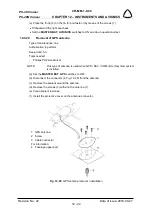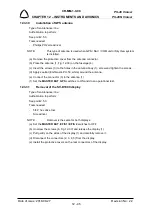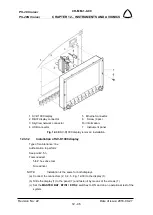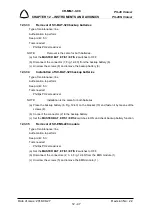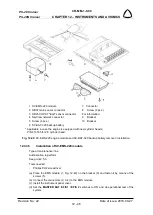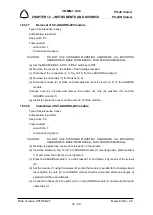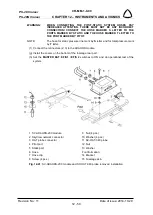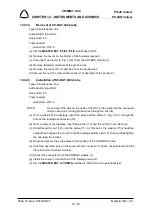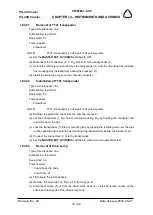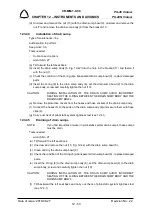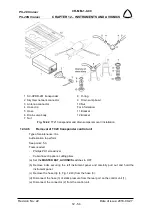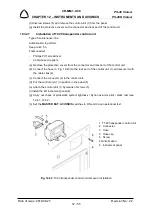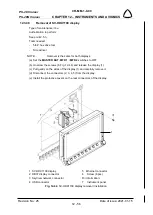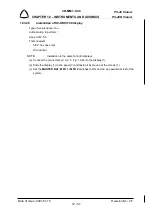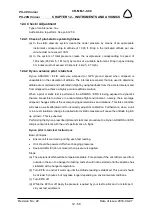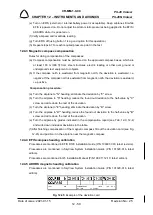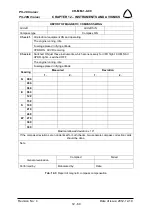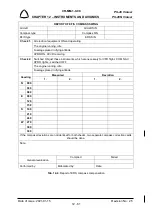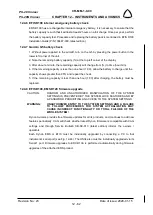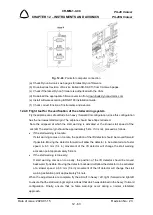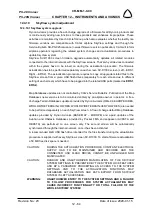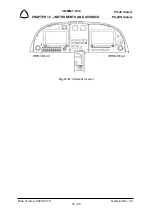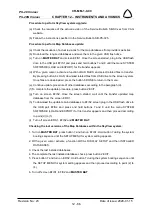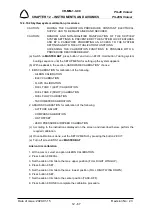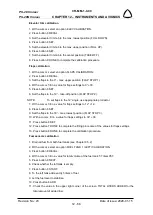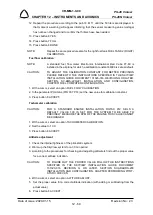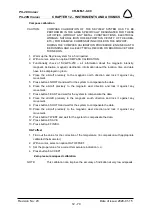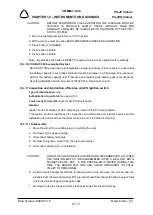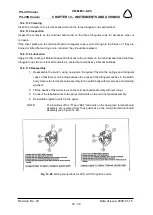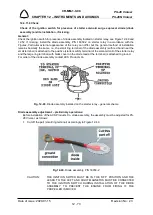
PS-28 Cruiser
PS-28N Cruiser
CR-MM-1-0-00
CHAPTER 12 – INSTRUMENTS AND AVIONICS
Revision No.: 22
Date of issue: 2018-09-27
12 - 58
12.4 Check / Adjustment
Type of maintenance: line
Authorization to perform: See point 2.5.3.
12.4.1 Check of pitot-static system tightness
(a) In the static pressure system create the under pressure by means of an appropriate
instrument corresponding to altitude of 1,000 ft. Drop in the indicated altitude per one
minute must not exceed 100 ft.
(b) In the system of total pressure create the overpressure corresponding to speed of
140 knots (260 km/h, 161 mph) by means of a suitable instrument. Drop in speed during
3 minutes must not exceed 2.3 knots (4.4 km/h, 2.7 mph).
12.4.2 Dynon avionics pitot / static test
Dynon ADAHRS / EFIS units use airspeed (or GPS ground speed when airspeed is
unavailable) in the calculation of attitude. The internal rate sensors that are used to determine
attitude are monitored and calibrated in-flight by using feedback from the accelerometers and
from airspeed to achieve a highly accurate attitude solution.
When a pitot or static test is performed, the ADAHRS / EFIS is being exposed to dynamics
that are impossible to achieve in a real airplane flight environment – namely, there are large
airspeed changes without the accompanying accelerations and rotations. This false condition
will cause a well-calibrated unit to incorrectly adjust its calibration. Furthermore, when a unit
is in a test situation a change in applied pitot or static pressure will cause the attitude to pitch
up or down. This is expected.
Performing the Dynon prescribed pitot and static test procedure to a Dynon ADAHRS or EFIS
will prevent problems with the unit’s performance in flight.
Dynon pitot / static test Instructions
Basic principles:
•
Ensure unit is warmed up during each test reading.
•
Unit should be powered off when changing pressures.
•
Keep aircraft still (do not move) when pressure is applied.
Steps:
(a) The airplane itself should be temperature stable. For example, if the aircraft is moved from
outside in the sun to a hangar for testing, tests should not be started until the airplane has
stabilized at the hangar temperature.
(b) Turn EFIS on and let it warm up until the altitude reading is stabilized. This period should
be at least 5 minutes, but may take longer depending on environmental conditions.
(c) Turn EFIS off.
(d) While the EFIS is off, apply the pressure required by your test to pitot and / or static port
via your test equipment
.

